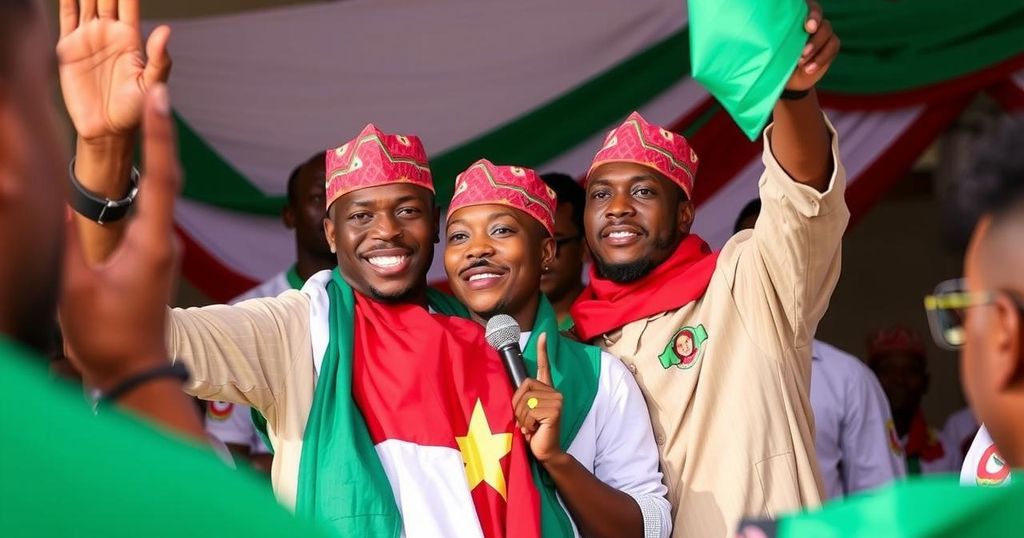Chad’s Ruling Party Dominates Parliamentary Elections Amid Opposition Boycott

Chad’s ruling Patriotic Salvation Movement won 124 out of 188 parliamentary seats in a largely unopposed election marked by a 51.5% voter turnout. The election, which was boycotted by significant opposition groups, has reinforced President Mahamat Idriss Deby’s authority amid ongoing security threats. This election is seen as part of a transition towards democracy following his ascendance to power in 2021.
Chad’s ruling party, the Patriotic Salvation Movement (PSM), has secured a decisive majority in the recent parliamentary elections, capturing 124 out of 188 available seats. This election, which marked the first parliamentary process in over a decade, was characterized by a 51.5% voter turnout and was boycotted by significant opposition figures, including the leading Transformers party. This situation has effectively solidified President Mahamat Idriss Deby’s control, following his rise to power in 2021 after the death of his father, the long-standing leader Idriss Deby Itno. Despite promises of a democratic transition and decentralization of governance, analysts suggest the lack of serious opposition raises concerns regarding the election’s credibility and the future of democracy in Chad.
The recent parliamentary elections represent a pivotal moment for Chad, occurring in the context of ongoing security challenges posed by extremist groups such as Boko Haram. Following the death of Idriss Deby Itno, his son Mahamat Idriss Deby assumed leadership and promised a political transition towards democracy. However, skepticism among the opposition, which boycotted the elections citing concerns over fairness, indicates a broader issue regarding political stability and governance within the nation. The electoral commission has presented this election as crucial for decentralizing power, a key demand from the populace, yet the absence of credible opposition raises important questions about the democratic process in Chad.
The results of Chad’s recent parliamentary elections underscore the consolidation of power by President Mahamat Idriss Deby, especially in light of the opposition’s absence from the electoral process. Despite claims regarding the move towards decentralization and democracy, the actions of the ruling party and the context of the elections reveal a complex struggle between governance, security, and public trust in Chad’s political landscape. As the nation navigates these challenges, the commitment to genuine democratic practices remains in question.
Original Source: www.euronews.com







